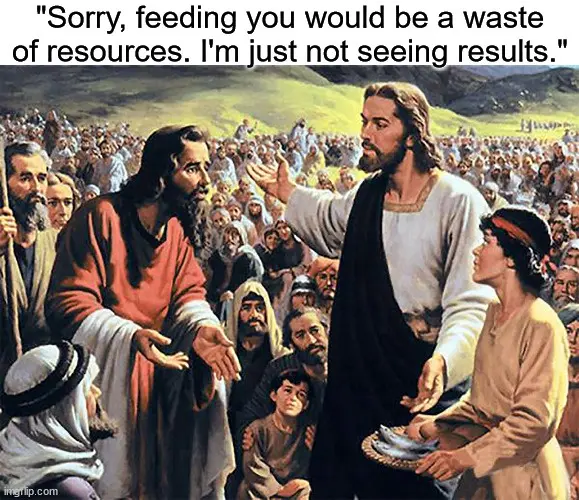this post was submitted on 15 Jun 2024
876 points (98.5% liked)
Funny
7606 readers
1038 users here now
General rules:
- Be kind.
- All posts must make an attempt to be funny.
- Obey the general sh.itjust.works instance rules.
- No politics or political figures. There are plenty of other politics communities to choose from.
- Don't post anything grotesque or potentially illegal. Examples include pornography, gore, animal cruelty, inappropriate jokes involving kids, etc.
Exceptions may be made at the discretion of the mods.
founded 2 years ago
MODERATORS
you are viewing a single comment's thread
view the rest of the comments
view the rest of the comments

It always comes down to transubstantiation versus consubstantiation.
-Lisa Simpson
I don't think that the whole transubstantiation issue is big for Catholics, in practice. But they are supposed to believe that during mass, bread and wine literally turn into the flesh and blood of Jesus Christ. Protestants have a slightly different take. Maybe it only becomes an issue in the context of the British domination of Ireland. I'm not sure, but at least in some Protestant/Anglican circles the Catholic belief was/is considered barbaric. https://en.wikipedia.org/wiki/Transubstantiation#Anglicanism
Maybe it's derived from 19th century Anglicanism, when there were poor houses and Famine Roads?
Side note: As a neutral person (ie atheist), I find the retelling of the "feeding of the multitude" rather dubious. The anti-welfare message isn't there. It's a common conservative talking point in the US, that government welfare makes people dependent. The thing about eating Jesus is from elsewhere. It doesn't belong in that story. The author adapted these pieces from the bible and made inserted their own teachings.
It's funny how little connection there is between scripture and actual teachings. For abortion, they bothered to change the text.